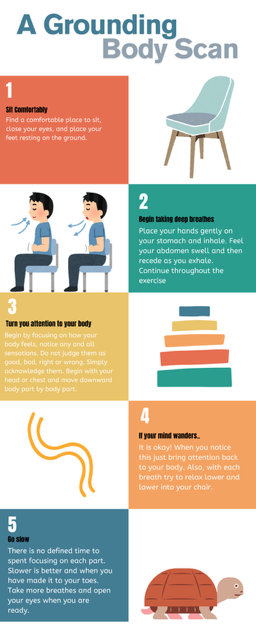Ducks and Budgets
By Corey DeGiacomo, MS, LMFT-Candidate
A Duck Metaphor for Understanding Anxiety

Have you ever watched a duck swimming on a pond?
Picture it: the calm, glass-like surface of the water, gently broken by the soft, rounded body of a mallard drake. You see the V-shaped ripple trailing behind the waterfowl as his iridescent green-blue head surveys the scene in serenity. The duck appears calm and at peace.
But not all of the duck is visible.
Beneath the water’s surface are two webbed feet—its motor and stabilizer—paddling furiously. These feet operate at different speeds, fast or slow, to keep the duck balanced and moving. On the outside: stillness. Underneath: constant motion.
This metaphor offers a powerful way to understand one particular way that anxiety can be experienced by people. Outwardly, someone experiencing anxiety might seem calm, quiet, or even detached. Their stillness becomes a blank canvas on which others project assumptions, such as aloof, chill, disinterested, or lazy.
Beneath that composed exterior, however, there may be a storm of activity, maybe it is helpful to think of it as hidden.
Someone with hidden anxiety might be:
- Overwhelmed by intrusive thoughts
- Replaying conversations repeatedly
- Regretting what they said—or didn’t say
- Dreading future tasks or interactions
- Feeling guilty for not meeting expectations
- Emotionally exhausted from trying to seem “okay"
They may appear fine, but internally, they're working incredibly hard just to keep afloat.
For those who don’t often struggle with anxiety, it can be easy to assume someone isn’t trying hard enough or simply doesn’t care. But that interpretation can lead to miscommunication and hurt.
On the other hand, those familiar with anxiety may feel frustrated, guilty, or powerless—wanting to show up differently in the world, but feeling stuck in patterns they feel they have no control over.
It might be best to consider another metaphor for understanding this experience of anxiety, the “body budget.”

The "Body Budget" Explained: How Anxiety Drains Mental Energy
I first encountered the term "body budget" in neuroscientist Lisa Feldman Barrett’s work on emotions. She describes how the brain manages energy like a financial budget—predicting energy needs, allocating resources, and cutting back where necessary. This includes its own needs. After all, our thoughts are in our brain and our brain is in our body.
When someone is experiencing anxiety, their mental energy is being consumed by intrusive thoughts and emotional stress. To conserve energy, the brain might reduce output in other areas, like:
- Social engagement
- Problem-solving
- Empathy or attentiveness
This explains why someone with anxiety might struggle to “show up” in ways others expect. It’s not laziness—it’s energy depletion because a brain working in this way requires more energy than one not experiencing these things. Our thoughts are not just mental because mental activity requires physical energy.
The body budget model gives us not just understanding, but the opportunity for action.
It can be helpful to find ways to increase your energy supply such as prioritizing sleep, eating nourishing meals, taking breaks, and engaging in calming activities.
Also, it can be helpful to spend wisely by knowing your limits, being mindful of overcommitting, spacing out draining tasks or social events, and creating time to recharge between obligations.
Hopefully this way of thinking about this experience can help replace judgment with compassion—for others, and for yourself.
Final Thoughts: Pause and Consider the Cost of Anxiety
The next time you or someone else seems “off,” consider what may be happening beneath the surface. Like the duck gliding across the pond, people with anxiety often appear calm while working furiously underneath.
By understanding anxiety as a taxing, internal experience—one that draws heavily from a person’s actual physical resources—we can move away from assumptions and toward empathy.
So the when anxiety frustrates you—whether it bothers you or someone else—pause and consider the hidden cost.
Corey Degiacomo, LMFT-C, is a Licensed Marriage and Family Therapist - Candidate and a clinical team member at Transforming Life Counseling Center
Source: Corey DeGiacomo
https://share.google/mmAu8FqXCDchpixFn







